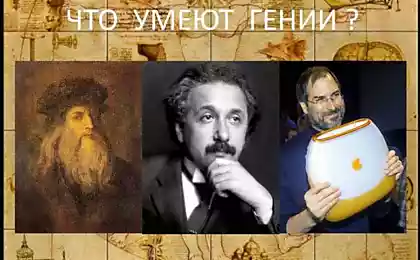573
Perhaps the progress of science destroys genius

question of whether the scientific genius of an endangered species - a broad topic for discussion. A qualified scientist, Professor Emeritus, University of California at Davis, Dean Keith Simonton spent three decades studying the scientific genius and wrote a book about it.
In describing the "typical" scientific genius, Professor Simonton insists that while a creative scientist brings his share of original and useful ideas, the genius scientist offers ideas for truly unexpected. Rather than expand the boundaries of the already known, a brilliant scientist invents a new area and is leaps of progress. Unfortunately, according to Simonton now scientific geniuses - it is the deficit, and possibly even an endangered species.
"In my opinion, a revolution for the modern scientists can not, - says Simonton. - Our theories and tools can explore the farthest reaches of the universe and learn about the very first seconds of her life, we can examine the smallest forms of life, and subatomic particles. It is hard to imagine that scientists have not noticed any phenomenon in astronomy, physics, biology or chemistry. Future discoveries are likely to be based on what is already known, and fundamental discoveries, overturned the foundations of science, is not expected ».
It seems Simonton view that modern science has stood on the site, which through its ultra-precise devices people have already seen everything there was to see. All key points in the sciences are already open, put into place and numbered. All that's left to do - connect all the data into a coherent whole.
Opinions Simonton is based on the fact that all the discoveries are being made in large teams of scientists of equipped laboratories with funding from. Science put on stream - it is a huge, centralized, interconnected system, which of course has a number of advantages, but Simonton believes that the emergence of the genius of such a system is unlikely. Geniuses tend to think independently, have no prejudices and are open to new things. Furthermore, among the research laboratories of today there is a high competition for limited financial resources, and ideas like "launch into the sky hamburger" can totally overshadow the truly revolutionary ideas that will be ignored and eventually forgotten.
Most Simonton fears that "an amazing identity" geniuses in the past. However, this opinion already expressed the famous physicist Kelvin in 1901, and four years later, Albert Einstein published his theory of relativity.
via factroom.ru
Scientists intend to build a supercomputer that simulates the activity of the human brain
The shortest scheduled flight in the world lasts only two minutes























